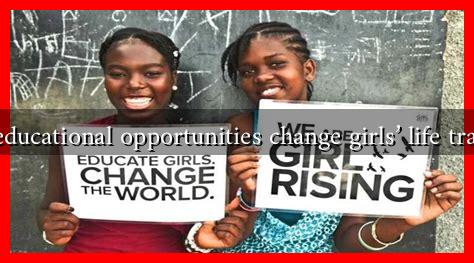-
Table of Contents
How Do Educational Opportunities Change Girls’ Life Trajectories?
Education is a powerful tool that can transform lives, particularly for girls in developing and developed countries alike. Access to quality education not only empowers girls but also has a ripple effect on their families, communities, and societies. This article explores how educational opportunities can significantly alter the life trajectories of girls, leading to improved economic, social, and health outcomes.
The Importance of Education for Girls
Education is a fundamental human right and a critical factor in achieving gender equality. According to UNESCO, every additional year of schooling can increase a girl’s future earnings by up to 20%. This statistic underscores the economic benefits of educating girls, but the advantages extend far beyond financial gains.
Empowerment Through Knowledge
Education equips girls with knowledge and skills that empower them to make informed decisions about their lives. Here are some key areas where education plays a transformative role:
- Critical Thinking: Education fosters critical thinking skills, enabling girls to analyze situations and make informed choices.
- Self-Confidence: Attending school and achieving academic success boosts self-esteem and confidence, encouraging girls to pursue their goals.
- Leadership Skills: Educational settings often provide opportunities for girls to take on leadership roles, preparing them for future positions of influence.
Economic Impact
Investing in girls’ education has profound economic implications. Educated women are more likely to participate in the workforce and contribute to their families’ incomes. Here are some statistics that highlight this impact:
- According to the World Bank, if all girls completed secondary education, it could lead to a $21 trillion increase in global GDP.
- Women with secondary education are 50% more likely to work in skilled jobs compared to those with no education.
For example, in Bangladesh, the introduction of stipends for girls to attend school has led to a significant increase in female enrollment and retention rates. As a result, many of these girls have gone on to secure better-paying jobs, contributing to their families’ economic stability.
Social and Health Benefits
Education also has a profound impact on social and health outcomes for girls and their communities. Educated women are more likely to:
- Delay marriage and childbirth, leading to healthier families.
- Make informed health choices, resulting in lower maternal and child mortality rates.
- Advocate for their rights and the rights of others, contributing to social change.
A study by the United Nations Population Fund (UNFPA) found that girls who receive an education are more likely to have fewer children and invest more in their children’s education, creating a cycle of empowerment and opportunity.
Case Studies: Success Stories
Several organizations are making strides in improving educational opportunities for girls worldwide. Here are a few notable examples:
- Malala Fund: Co-founded by Nobel laureate Malala Yousafzai, this organization advocates for girls’ education globally, particularly in regions where girls face significant barriers to schooling.
- Girl Rising: This global campaign uses storytelling to inspire girls’ education and empower young women to advocate for their rights.
- BRAC: Operating in Bangladesh and several other countries, BRAC’s education programs have successfully increased girls’ enrollment and retention rates in schools.
Conclusion: The Path Forward
Educational opportunities are crucial in changing the life trajectories of girls. By investing in girls’ education, we not only empower them but also create a more equitable and prosperous society. The benefits of educating girls extend beyond individual success; they contribute to economic growth, improved health outcomes, and social change. As we move forward, it is essential to continue advocating for policies and programs that promote girls’ education globally.
In summary, the transformative power of education for girls cannot be overstated. By ensuring that every girl has access to quality education, we can pave the way for a brighter future for individuals and communities alike. For more information on the importance of girls’ education, visit UNESCO’s Girls’ Education page.

